Victims of infected blood scandal 'need answers'
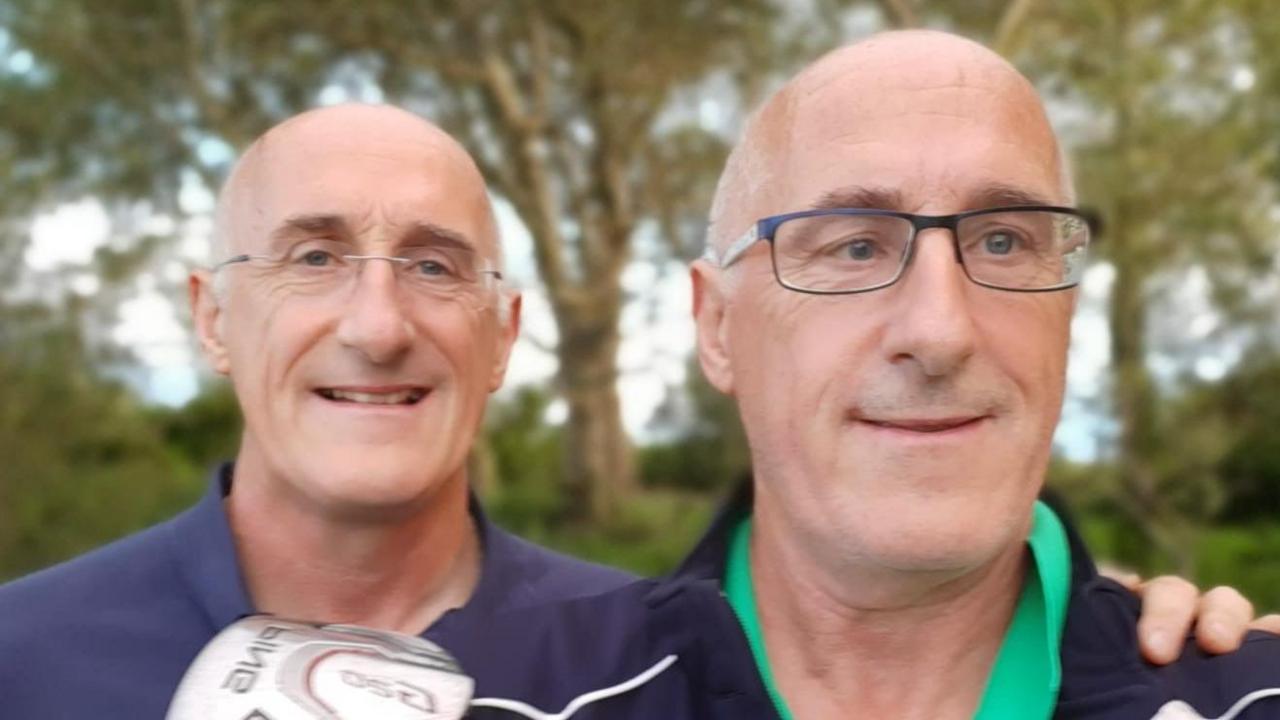
Nigel Hamilton with his late brother Simon, both of whom were infected
- Published
Victims of the infected blood inquiry need answers so they can “close this sorry chapter and move on with their lives”.
They are the words of Nigel Hamilton, 63, who has haemophilia and contracted Hepatitis C after receiving contaminated blood products.
He is in London to hear the findings of a public inquiry into what has been called the biggest treatment disaster in NHS history.
More than 30,000 people in the UK were infected with HIV and Hepatitis C after being given contaminated blood products in the 1970s and 1980s.
Infected blood victims await report into biggest ever NHS treatment disaster
- Published20 May 2024
Speaking to BBC News NI, Nigel said he received contaminated blood during an operation in the Royal Victoria Hospital in Belfast in the 1970s.
His twin brother Simon, who died on Christmas Day in 2023, also contracted Hepatitis C after being given contaminated blood transfusions.
'Cascade of different emotions'
Nigel said he is feeling a “cascade of different emotions” and a particular sense of loss that Simon did not live to see the day of the report’s final publication.
“I am anxious, relieved, but frustrated that it has taken so long to get here and a sense of anti-climax because in so many ways it is not over yet but only entering the final phase as we move towards compensation,” he said.
Sir Brian Langstaff will deliver his report on Monday afternoon.
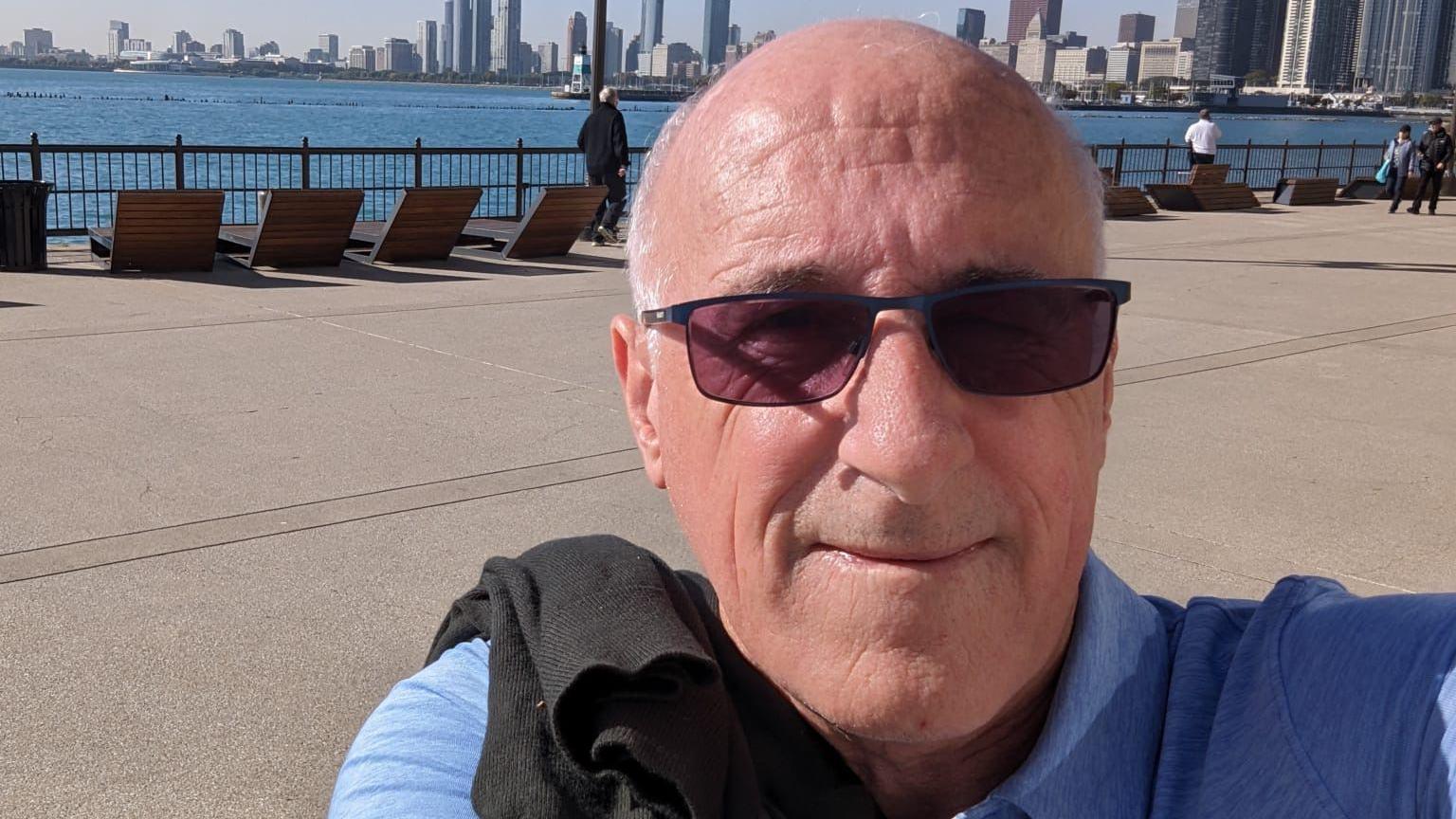
Nigel Hamilton is in London to hear the findings of the inquiry
Victims have been campaigning for full compensation and it is thought the government will make announcement about those details shortly after the report is published.
About 5,000 people with haemophilia and other bleeding disorders are believed to have been infected with HIV and hepatitis viruses over a period of more than 20 years.
That was because they were injected with blood products used to help their blood clot.
It was a treatment introduced in the early 1970s; before then patients faced lengthy stays in hospital to have transfusions, even for minor injuries.
The UK was struggling to keep up with demand for the treatment – known as clotting agent Factor VIII – and so supplies were imported from the United States.
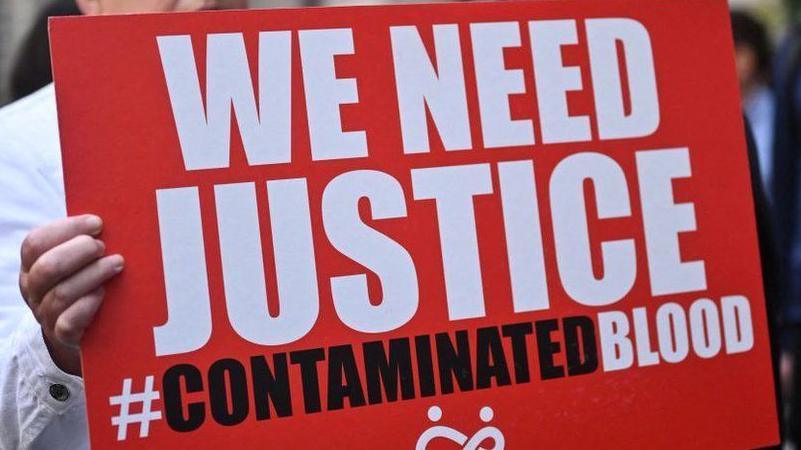
Victims of the scandal are calling for compensation
How many are affected in NI?
But most of the human blood plasma used to make the product came from donors such as prison inmates who sold their blood.
Nigel Hamilton said he was often “starved” of information and was only told he had contracted the virus during a routine visit to a hospital in England, despite the Belfast Health Trust knowing about the diagnosis some 12 months previously.
He is one of 105 people in Northern Ireland who are recipients of the Infected Blood Payment Scheme.
Of that number, 79 men and women are infected and 26 are bereaved partners.
Four people infected with HIV continue to live in Northern Ireland
Partners can join the scheme when their partners die, and they are entitled to a proportion of their payment.
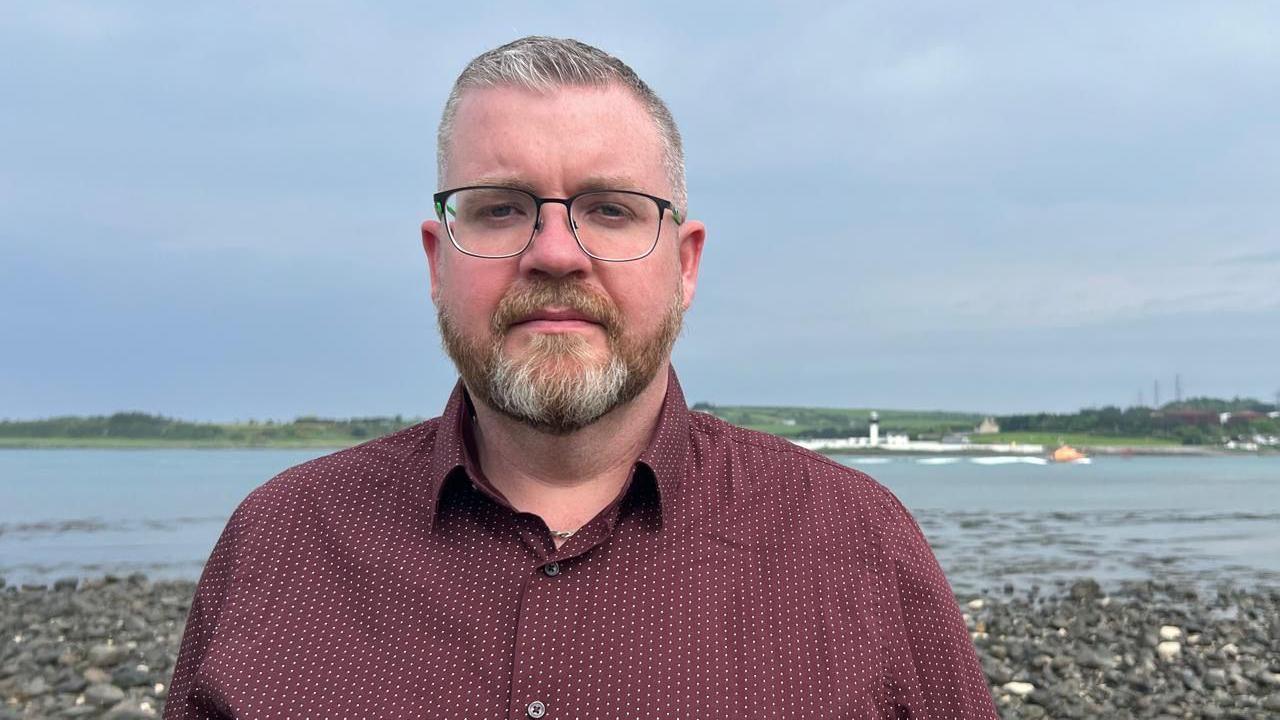
Conan McIlwrath said there had been "so much stigma, hurt and death" that "we have been determined to see this through"
Conan McIlwrath, from Larne in County Antrim, was born with haemophilia but contracted Hepatitis C stage one, from contaminated blood given to him as a child.
He said being in London and hearing the report being delivered is important for everyone impacted.
“It feels surreal to be at this point – some people have been waiting for answers for more than 40 years; some people didn’t make it,” Conan said.
Conan said while physically there are many worse off than him fighting for the truth, it had been exhausting from start to finish.
“We just couldn’t leave it, there had been so much stigma, hurt and death we have been determined to see this through,” he added.
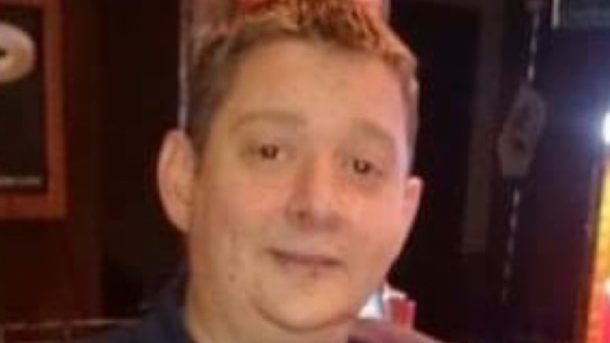
Seamus (Shea) Conway died at the age of 45
'Truth, justice and accountability'
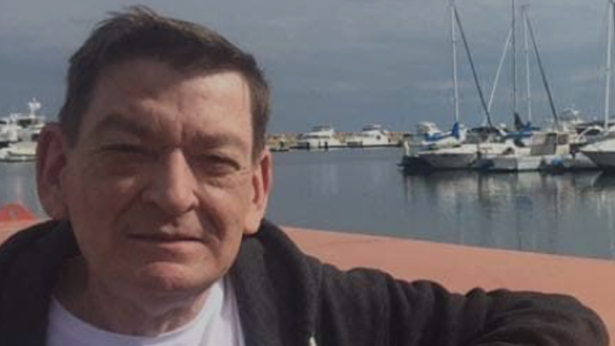
Michael Birtles who was 59, was infected with hepatitis through treatment for haemophilia
Christina McLaughlin said her family has been “devastated” by the infected blood scandal with the premature deaths of her youngest brother Seamus (Shea) Conway, 45, in May 2018 and cousin Michael Birtles, 59, in March that year.
Seamus and Michael were infected with hepatitis through their treatment for haemophilia.
Infected blood inquiry: Five things we have learned
- Published3 February 2023
Seamus was infected as a six-year-old child and Michael as a young adult; both died from hepatitis-related liver cancer, because of their infections.
Christina said it is important for her to be in London to see the report being delivered to represent her family, especially those who died.
“Unfortunately, our family’s story doesn't end there, but we have faith that the final report from Sir Brian Langstaff, will finally bring truth, justice and accountability,” she said.
Related topics
- Published20 May 2019
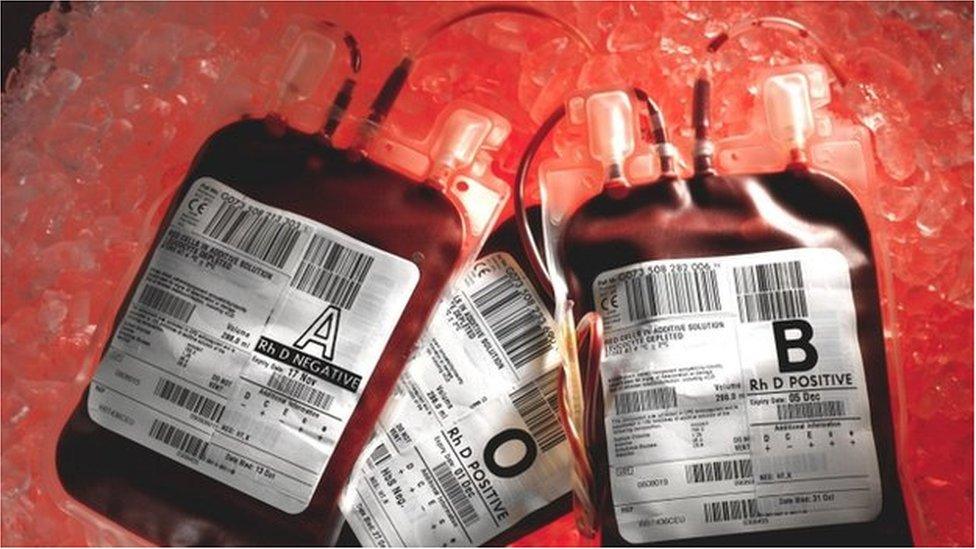
- Published31 March 2021
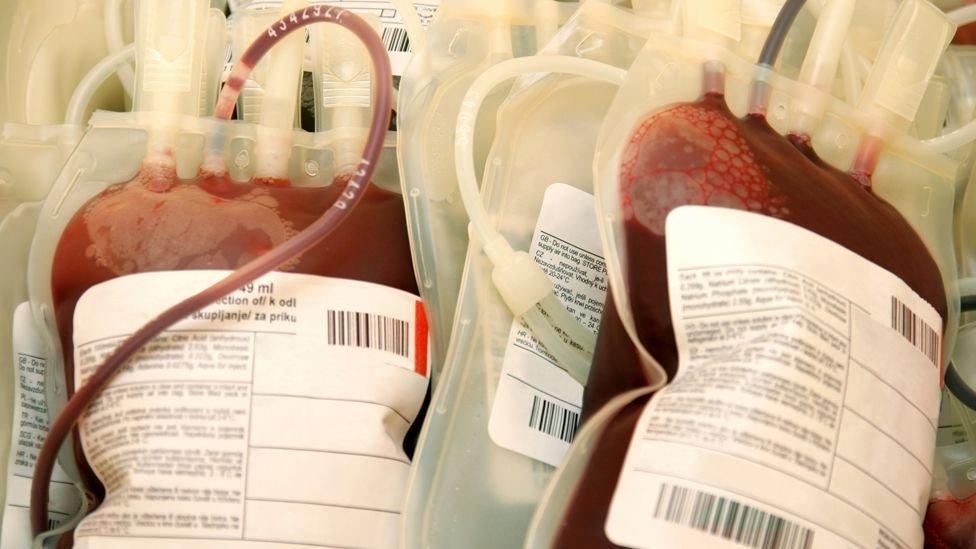
- Published17 August 2022

- Published27 January 2023
